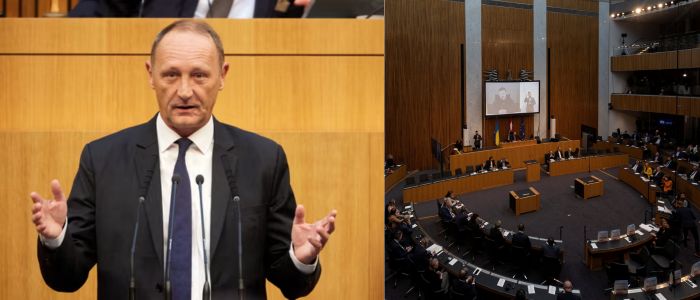Side Jobs Incite Outrage and Accusations
The most recent report, based on the 2024 income declarations, had seven FPÖ MPs taking home more than €12,000 a month from outside jobs, mainly as notaries, lawyers, and business executives. This is on top of the €10,000 they get each month for being a member of the parliament. On average, FPÖ members of parliament had 1.9 more sources of income than did those of any other party in parliament.
The news led to widespread criticism on social media, where Austrians accused the MPs of hypocrisy. In the comments, one critic wrote, “preaching water and drinking wine!” with another wondering how those MPs could balance intense side jobs with full–time legislative duties. The sense of double standards has cut through with voters, who are already struggling with pressures in the economy and cuts to public services.
Critics from all sides also joined the fray: Nico Marchetti of the co-ruling People’s Party (ÖVP) castigated the credibility of the FPÖ, which had topped the polls in September’s national vote. Klaus Seltenheim of the Social Democrats (SPÖ) said the findings were evidence of the “deception of the blue troops,” the colour traditionally associated with the FPÖ.
Top Earner Under Scrutiny
The FPÖ’s Axel Kassegger was the highest earning representative, with nine paying roles, stretching from working for two firms, sitting on the supervisory board of Energie Steiermark, and various speaking and consultancy deals. While there were also MPs from other parties in the top income bracket – four from the ÖVP, three from NEOS and the Greens, and two from the SPÖ – it was the FPÖ’s position as the self-declared voice of the working class that came in for criticism.
The ÖVP took part in the first three-way coalition with smaller parties in Austria in February in order to prevent the FPO, which is anti-Muslim and pro-Kremlin, from assuming power. It was the first time since the Nazi period that a far-right party received the most votes nationwide.
The FPÖ batted away the criticism as an effort to deflect attention from the current government’s economic performance, which it faulted for high inflation, unemployment, and recurrent recessions. The party insisted that all income declarations were entirely legal and transparent.
Broader Pattern of Far-Right Privilege?
The furore continued with remembrances of past scandals, such as the former FPÖ chief Heinz-Christian Strache, who this year was accused of spending more than €1m of public money on personal luxuries. Strache has denied the allegations, though the case has political implications given reports that it took place during the current FPÖ leader Herbert Kickl's time overseeing party finances.
Meanwhile, across the border in Germany, far-right leaders were also under fire over money.
Alice Weidel and Tino Chrupalla of the right-wing Alternative für Deutschland (AfD) recently authorised €12,000 per month each in addition to their basic salaries of just less than €12,000 and €5,300 in expense entitlements from the Bundestag, according to reports. The party justified the rise by referencing its gaming in parliament and previous below-average allowances.
Together these revelations have sparked debate throughout Europe on transparency, accountability, and whether far-right parties really represent the working class that they purport to defend.
World

Austrian Far-Right MPs Criticised Over Lucrative Side Jobs

Austrian far-right politicians are reputationally “on the racks” politically and publicly after it emerged that MPs from the Freedom Party (FPÖ) are the top earners in parliament, despite pledging to represent “ordinary people.”















